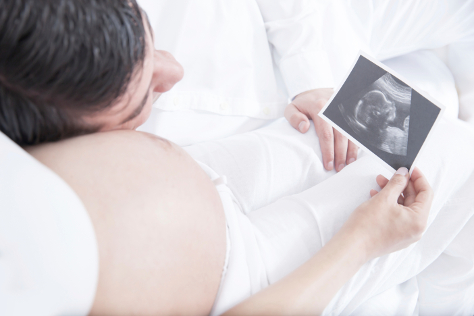Your 20 week pregnancy anomaly scan
Close to halfway through your pregnancy, you’ll be offered a 20-week anomaly scan. This scan is similar to your 12 week dating scan but with provide you with more information details about your growing little one. At 20 weeks your baby will really be taking shape, so it’s a chance to see how everything is developing.

What is the 20-week anomaly scan?
The 20-week anomaly scan, sometimes known as the mid-pregnancy scan, is carried out in the exact same way as your 12 week dating scan but the images your get to see on the monitor are far more detailed.
The anomaly scan will usually take place between 18 and 20 weeks, plus six days pregnant, and its primary purpose is to see how your baby is growing, the health and position of your placenta and if there are any visible problems with the way your baby is developing and any physical abnormalities that might not have been visible on the 12-week scan.
As there’s a possibility of detecting problems, it’s something to think about if you’re thinking of taking other children along, and many ultrasound departments do not allow children in for this reason.
What will I find out at the 20-week anomaly scan?
The scan will show your baby in more detail than previous scans as your little one will be close to halfway through their development in the womb.
The sonographer will be checking for a number of potential physical abnormalities which may be treatable or pose a risk to the baby, but may also be able to reveal the gender of your baby - if you wish to know!
As with your 12-week scan, the sonographer will check your baby’s general development by looking at their brain, bones, organs and measurements, which will help to highlight some of the following:
Face: They will check your baby’s face for signs of a cleft lip. Not all cleft lip and palate issues show up on the screen due to this being inside a baby’s mouth, this can be difficult to pick up on the scan. If cleft lip or palate is diagnosed, you’ll be referred to a specialist NHS cleft team to discuss the treatments they may have.
General shape and structure of their head: They will check this to determine if any rare and severe brain development issues are present, as well as other conditions involving the head including anencephaly – a brain disorder and excess fluid around the brain.
Spine: They will check your baby’s spinal cord – the column of nerves that connect the body’s nerve system to the brain, and make sure baby’s bones align and that skin covers the spine.
Heart: Your baby’s heart will be checked for any abnormalities including whether the valves of the heart are operating correctly, and also ensuring that major arteries are working correctly and pumping blood around correctly. Detecting heart defects before birth has huge benefits. The sonographer takes five different views of your baby’s heart to check all looks well.
Kidneys: They will check the kidneys and ensure that your baby has two kidneys and will also check that urine is flowing into the bladder.
Abdominal wall: This will be checked to ensure your baby’s organs are covered, along with the umbilical cord and placenta
Limbs: Baby’s arms, legs, feet and hands will be checked to see if they’re developing normally.
1. The sonographer will be checking for 11 rare conditions
2. Scans cannot identify all possible conditions and there is always a chance that a baby may be born with a health issue that scans could not have seen.
What if they find a problem?
Most antenatal screening tests will not find anything wrong. But if the sonographer does spot something, they will let you know straight away. You will then be offered an appointment for further tests to determine what’s happening and potential next step.
It can be upsetting if your scan indicated a higher risk or possible problem. Your midwfe, doctor or consultant will be able to answer any questions on your mind.
You can also contact the charity Antenatal Results and Choices (ARC). They have information about further screening tests and a helpline answered by trained staff on 08450772290 or 020 77137486, or visit arc-uk.org.